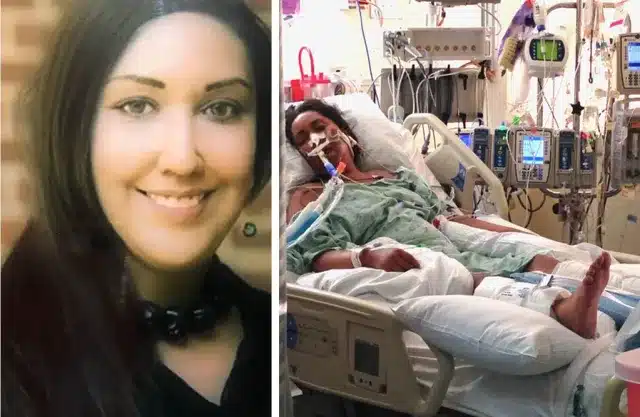Shilpa Airy was an entrepreneur and research scientist who ran a successful biotech consulting business in San Francisco. She worked with many of the top researchers and physicians around the world. She was a leader in her field and devoted her career to developing medications to treat or cure diseases. She was especially proud of an FDA-approved drug she worked on to treat a rare genetic disease in children.
Shilpa befriended everyone. When she walked into a room, everyone knew who she was. She was a force of nature.
From a family of academics and scientists, Shilpa worked her way through college. After a brief stint in the corporate world, she decided she could help more people if she opened her own business. So, she moved to California and started her company.
Her world came to a screeching halt in 2014 when Shilpa had routine gall bladder surgery. A week following the procedure she began having severe abdominal pain. Shilpa reported to the ER, where they ordered a CT scan, but a known allergy to the dye they used during the scan caused her to begin vomiting immediately afterwards. She was admitted to the hospital and scheduled for an exploratory endoscopy. At the start of the endoscopy, Shilpa’s airway was not protected and she breathed vomit into her lungs. She ended up in a coma with complete lung failure. She was on multiple forms of life support for nearly a month.
Although Shilpa showed all the signs, her providers failed to see that she had acquired an intestinal infection involving C-Difficile, likely acquired during her previous hospitalization. Had the infection been treated with antibiotics promptly, instead of attempting an endoscopy on a patient with active vomiting, she would not have suffered lung damage.

It was a miracle Shilpa survived but she was now home bound and reliant on her sister as a caregiver.
Her severely damaged lungs never recovered beyond 30%, and she was forced to use oxygen 24 hours a day. Over the next four years, her lung damage caused heart complications, but Shilpa’s repeated requests to see a specialist were also denied. Her condition declined to the point that she could no longer speak. During these four years, Shilpa was evaluated and monitored by lung transplant specialists but they chose not to list her until it was too late. Only two months before her death, she was diagnosed with severe high blood pressure in the lungs and end-stage heart failure, conditions that her team of five lung transplant specialists should have been able to catch months, if not years, earlier. The heart condition developed as a result of her lung damage. She was finally placed on the lung transplant list one month before she died. Shilpa didn’t just experience one medical mistake. She survived a series of mistakes but ultimately died from medical negligence at two different hospitals.
Shilpa worked with renowned doctors and devoted her career to finding cures for others. Yet, as hard as she tried, she was unable to survive medical negligence. She was a happy, positive woman, but her deteriorating condition broke her spirit.
Shilpa wanted the medical providers whose negligence destroyed her lungs and later her heart to acknowledge their errors and improve patient care. She filed a lawsuit while she was still alive. But a law passed by politicians in 1975 capped compensation in cases of medical negligence. Because of California’s outdated law, providers are not held accountable for preventable errors.
To date, none of Shilpa’s medical providers at both hospitals have apologized for their negligence.
Like Shilpa, her family just wants accountability for her death. Because the law capped their recovery, they will not get any reimbursement of her medical expenses. Her family is left without an extraordinary sister and daughter, and the world is left without a researcher to develop a cure for disease.
Seeking accountability, Alka filed a complaint with the Medical Board of California. To her dismay, the Board dismissed her complaint without action. The Department of Public Health even referred part of her hospital complaint to the Board, but she never received a response.
Alka says, “Time and time again, through my effort to seek accountability for my sister’s death, I have been told that the medical board is beholden to the CMA. We need to bring fairness and integrity back into our healthcare system.”
In her lifetime, Shilpa fought for a cure for other Californians. “Shilpa would want accountability and justice for others,” said her sister Alka. This is what drives her sister and her family to fight for patient safety reform.


